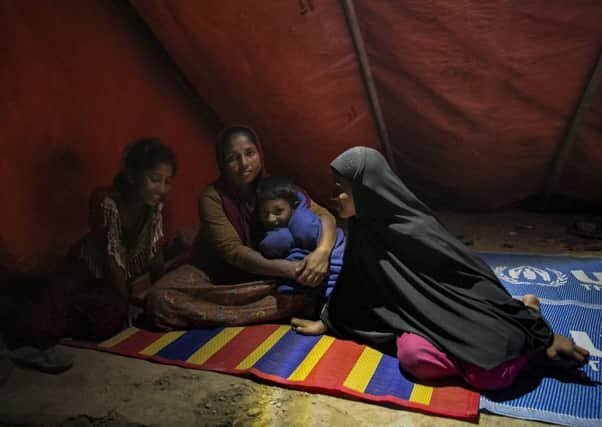Deal signed to return Rohingya to their home


The deal was announced yesterday, but no details were provided on how many Rohingya refugees would be allowed to return home.
Bangladesh said the repatriations will start within two months.
Advertisement
Hide AdAdvertisement
Hide AdMore than 620,000 Rohingya have fled from Myanmar into Bangladesh since August 25 when the army started “clearance operations” following an attack on police posts by a group of Rohingya insurgents.
Refugees arriving in Bangladesh said their homes were set on fire by soldiers and Buddhist mobs. Some reported being shot at by security forces.
The office of Myanmar civilian leader Aung San Suu Kyi said the agreement “on the return of displaced persons from Rakhine state” was signed by Cabinet officials in Myanmar’s capital Naypyitaw.
A statement said the pact followed a formula set in a 1992 repatriation agreement signed by the two nations after an earlier spasm of violence. Under that agreement, Rohingya were required to present residency documents, which few have, before being allowed to return to Myanmar.
“We’re continuing our bilateral talks with Myanmar so that these Myanmar nationals [Rohingya] could return to their country,” Bangladesh Prime Minister Sheikh Hasina was quoted as saying by the United News of Bangladesh.
“It’s my call to Myanmar to start taking back soon their nationals from Bangladesh.”
Rohingya at a refugee camp in Bangladesh expressed deep doubts about the agreement.
“They burned our houses, they took our land and cows – will they give us these things back?” Abdul Hamid, from Hoyakong, said.
Advertisement
Hide AdAdvertisement
Hide AdRohingya Muslims have faced state-supported discrimination in predominantly Buddhist Myanmar for decades.
Though members of the ethnic minority first arrived generations ago, Rohingya were stripped of their citizenship in 1982, denying them almost all rights and rendering them stateless. They cannot travel freely, practice their religion, or work as teachers or doctors and they have little access to medical care, food or education.
The Myanmar government has refused to accept them as a minority group. The statement issued yesterday by Ms Suu Kyi’s office did not use the term “Rohingya”.